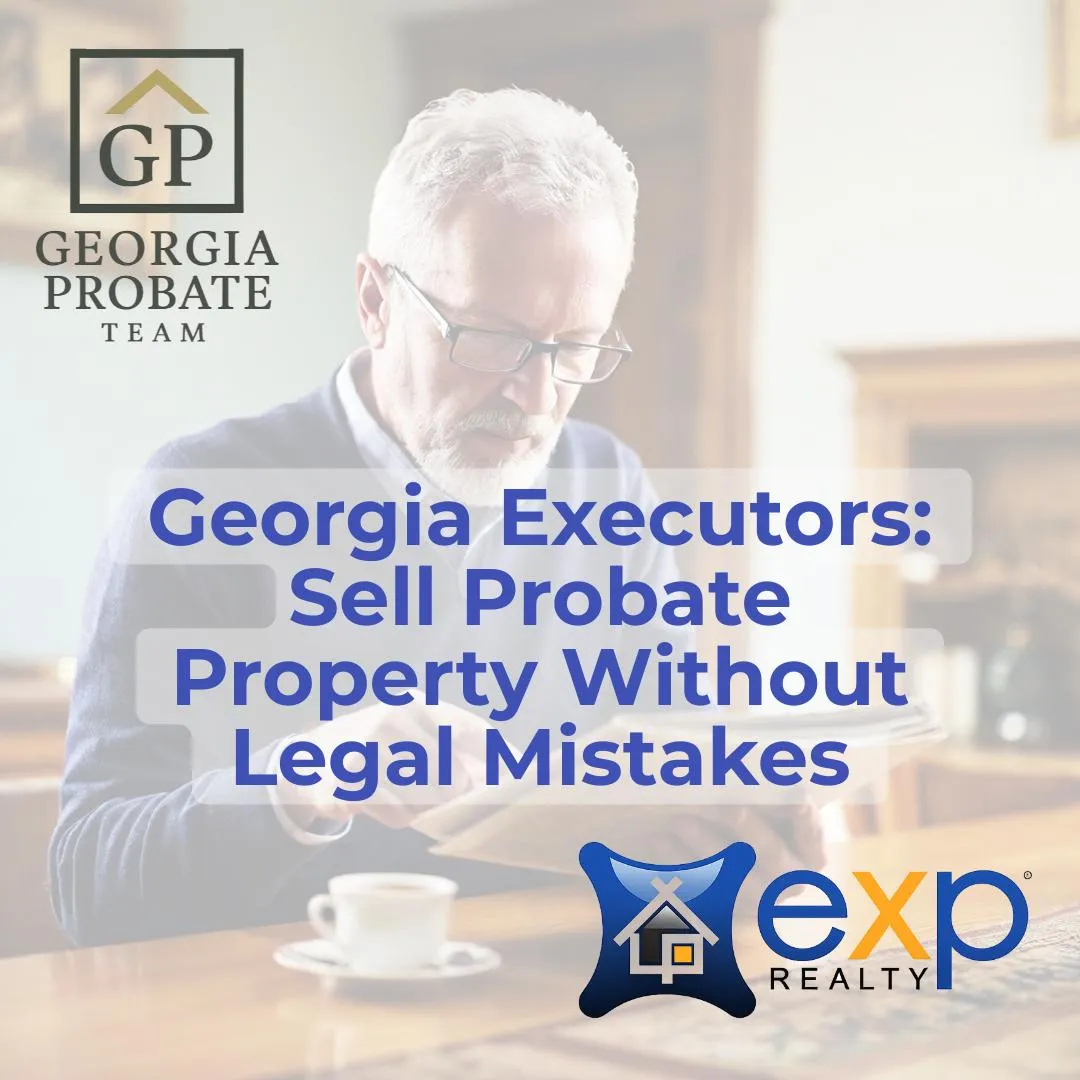
Executor Duties in Georgia: How to Legally Sell a Probate Property
Being named executor in Georgia is both an honor and a burden. From filing with the probate court to legally selling property, every step carries legal and family responsibility. This guide explains executor duties, common challenges, and how the Georgia Probate Team supports families as trusted guides through probate and foreclosure property sales.
Navigating Probate Property Sales in Georgia: A Guide for Executors
When someone passes away in Georgia, the probate process begins — and with it, the appointment of an executor. This role carries serious legal responsibilities, particularly when real estate is involved. Many executors quickly discover that selling a probate property isn’t as simple as calling a realtor; it requires court authority, strict adherence to Georgia law, and sensitive family communication.
Families often feel overwhelmed by grief, deadlines, and paperwork. Executors face questions like: Do I need court approval before selling the house? How do I handle debts and heirs? What happens if foreclosure is already looming? These are weighty issues that demand clarity and expertise.
Bobby & Falecia Terry, Licensed Associate Brokers with the Georgia Probate Team, brokered by eXp Realty, step in as trusted guides. We’ve guided hundreds of Georgia families through probate and foreclosure property challenges, helping them avoid costly mistakes while ensuring a smooth property sale.
Step 1: Understanding Executor Authority in Georgia
An executor does not automatically have the authority to sell estate property. That power comes from the probate court, which issues Letters Testamentary — the official document granting authority to act on behalf of the estate. Until these letters are issued, the executor cannot legally list or sell the property.
In Georgia, whether an executor has “power of sale” depends on the wording of the will. If the will includes this clause, the executor may sell real estate without returning to court for approval. If not, the court must authorize the sale. This distinction is critical: selling a property without the proper authority could render the transaction void.
Understanding these nuances helps prevent disputes with heirs and ensures the sale stands up legally. Executors who rush forward without verifying their authority risk prolonging probate and creating unnecessary stress for the family.
Step 2: Filing With the Probate Court
The probate process begins with filing a petition in the county where the deceased lived. This filing includes the will (if one exists), the death certificate, and a petition for Letters Testamentary. The court then reviews the documents and formally appoints the executor.
Errors at this stage can delay the entire estate process. Missing forms, incomplete filings, or missed deadlines can add weeks — even months — before property decisions can move forward. Executors often underestimate the paperwork load, which is especially heavy in counties like Fulton, Cobb, and DeKalb County Probate Courts where caseloads are high.
For real estate sales, these delays are costly. Mortgage payments, property taxes, and insurance continue to accrue. If the estate also faces foreclosure deadlines, immediate filing becomes even more urgent. Executors who act quickly, and with guidance, reduce the risk of losing the property unnecessarily. Learn more in our Georgia Probate Timeline Guide below.
Step 3: Core Duties of an Executor
Once appointed, executors carry a series of duties before any sale can occur:
Secure the property. Change locks, maintain insurance, and ensure utilities are managed.
Inventory assets. Georgia law requires a detailed list and valuation of estate property.
Pay debts and taxes. Creditors must be notified, and obligations settled before distributions.
Communicate with heirs. Transparency prevents disputes and reassures beneficiaries.
Only after these tasks are underway or complete can the executor move forward with listing and selling the property. Skipping steps exposes executors to legal liability and family conflict.
Step 4: Selling Probate Property in Georgia
Selling a house during probate requires careful coordination. If the executor has “power of sale,” they may list the property once debts and obligations are managed. Without that power, the executor must file a petition with the court requesting approval for the sale.
A licensed real estate professional is invaluable at this stage. Pricing a probate property correctly requires knowledge of both market trends and probate-specific buyer behavior. Bobby & Falecia Terry bring both — as Licensed Associate Brokers with the Georgia Probate Team, brokered by eXp Realty, they understand how to balance fair market value with the legal requirements of probate.
Court oversight ensures transparency, but it can also slow the process. Executors should expect court approval to add several weeks. When foreclosure deadlines loom, swift and accurate filings are critical to avoid losing the property altogether. That’s why we also provide dedicated Foreclosure Help in Georgia, integrating solutions for families facing both probate and foreclosure simultaneously.
Step 5: Executor Personas in Action
Each persona demonstrates a truth: families are the heroes, but executors shouldn’t have to carry the burden alone. The Georgia Probate Team exists to be the guide.
